When it became clear that Anglo-Dutch giant ‘Corus Steel Plant’ was going for sale several of world’s big steel players joined the hunt to get it. These were a lot of heavy weight steel industrialists and companies. Ratan Tata was also there but he was not being taken seriously. The steel big-wigs of the world were unaware of the steel will of Ratan Tata. It was anticipated that the deal would be in big figures. Ratan Tata would have to arrange some loan if he was making a serious bid. R.B.I. had assured him that he will get the money. So, Ratan Tata bid the highest and bagged the deal. ‘Time’ magazine described it as world’s sixth biggest deal.
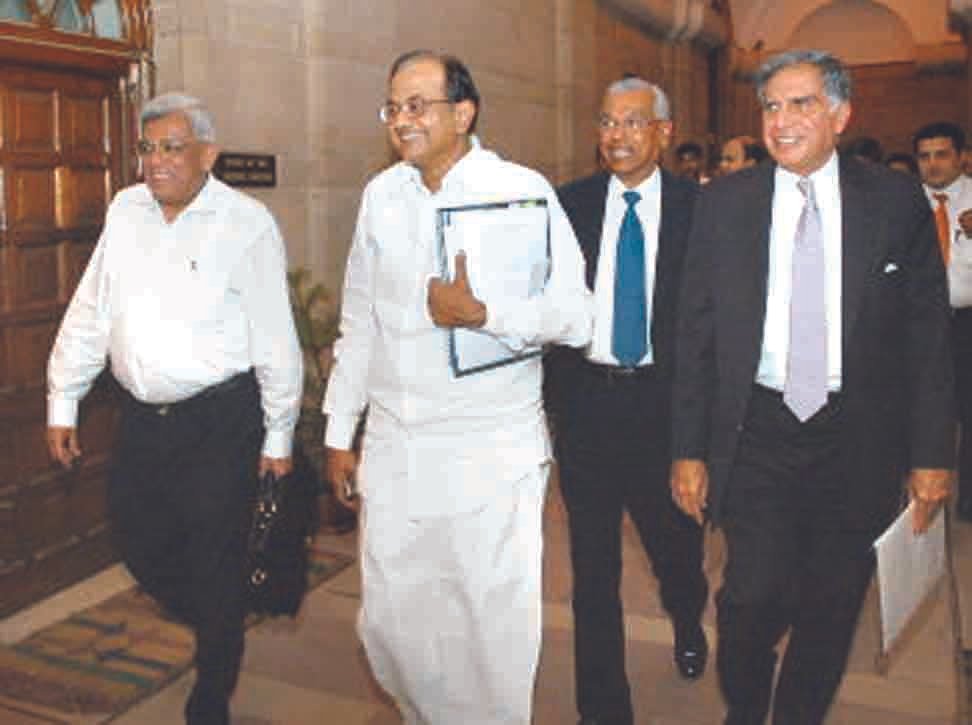
ICICI and Dipak Parekh chairman HDFC
Of course, Ratan Tata had to take a big loan to finance the deal. Some critics commented that the Corus buy will prove a big loss for Tata Group which would cripple it. Ratan Tata didn’t say anything. He prefers to reply with his performance. Instead of words the men of action show positive results. The detractors forgot that Ratan Tata acted only after a careful thought and assessment. It was not a blind move. He had worked out his strategy and action plan.
At the time of takeover obviously Corus Steel was struggling to stay afloat. For the deal Ratan Tata took a loan of 7.4 billion dollars. Because of this financial burden the deal was not being seen as a good buy. And the critics were aware that Tatas ran their enterprises with benevolent attitude towards their employees. They thought it would also prove their weakness. The Corus deal was termed as ‘buying a sick plant’. It was also a fact that Corus Plant used high cost technology for its steel production. Tata Group was also to bear the responsibilities of 3000 employees of Corus at Port Talbot, Wales.
Tata Group had their own plans to run the plant. The trade union representing Corus workers was not agreeable to any retrenchment. The union also demanded Tata Group invest 600 million dollar amount in the plant to keep it competitive in the market.
A twenty member delegation of the union arrived at Jamshedpur to talk to the new employers directly. But the managers of the Tata Group refused to give any assurance. The leader of the team inspected the Tata Steel Plant of Jamshedpur. He admitted, “I am very impressed with workers here, their capacity and efficiency and Tata’s commitment to social responsibilities plus employees welfare schemes. But we did not get the reply how their principles would be applied in England or European context.” Of course, his question is relevant. But he must remember that Corus takeover was not the first such bid for Tatas. They have taken over many other companies and no one is complaining. Corus Steel Plant would test the capabilities of Ratan Tata.
Tata Motors
Tata Motors had been producing heavy duty and medium trucks for quite some time. In the field of truck manufacturing Tata Motors has been a respectable name. After taking over chairmanship of Tata Group Ratan Tata got down to the business of expanding his endeavours. He had upgradation plans for many of Tata enterprises. Tata Motors was one of them. Under an ambitious scheme Ratan Tata made up his mind to enter the car sector. He had studied the Indian car market and demand deeply and taken that decision.
In 1998, after a lot of trial and research his car ‘Tata Indica’ entered the market. It was the first car that was totally designed in India with Indian needs and mind in consideration. Initial response was not good and critics even ran it down. But the negative reaction could not deter Ratan Tata. He put his faith in the consumers and the success of the ventures silenced his critics, After ‘Indica’ Ratan Tata introduced ‘Indigo’. Both model’s created waves in Indian car market. Within a few years Indica became second most favourite of Indian buyers. The economic Indica received the foreign support and market as well. Indica was exported to S. Africa, Spain and Italy. Enthused by his huge success Ratan Tata collaborated with Fiat Co. of Italy and targetted South America for export of cars and trucks. In 2006 Tata motors gained one more major success. He introduced a mini truck at price tag of 6000 dollars in the market and won the approval of the buyers. The first aim was to produce 75,000 mini trucks a year but its popularity took it up to the production of 2,50,000 units a year.
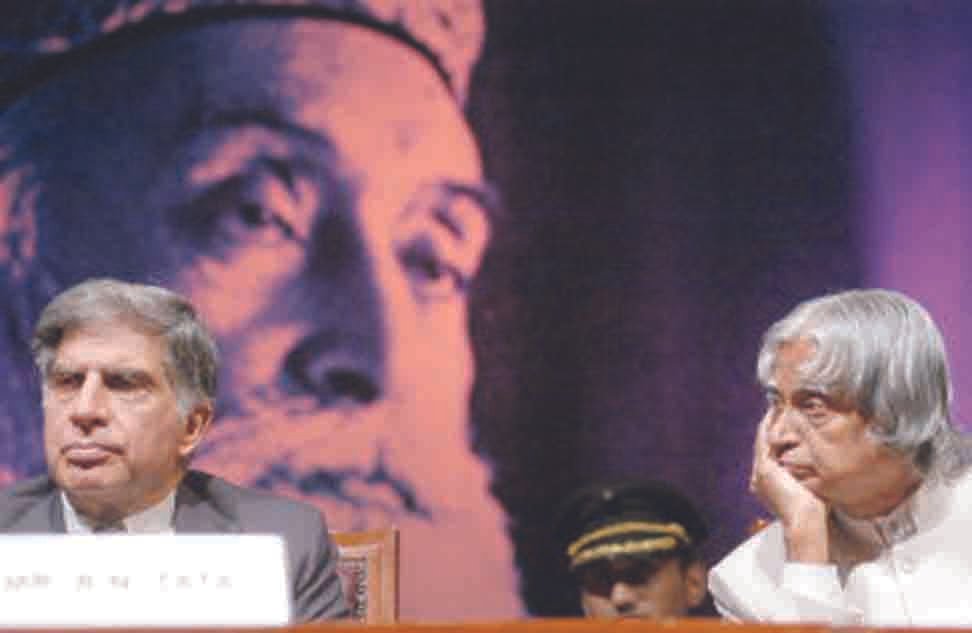
100th Death Anniversary of Jamshedji Naushervanji Tata
All these magnificent successes led to Ratan Tata buying Jaguar and Landrover model luxury cars from the Ford Motors of U.S.A. It established Tata Group as a quality players on international scene with dazzling brands as its symbols. These super luxury cars are for upper echelons of the societies. These brands were not commercially very successful for obvious reasons. They were over priced to make them social status symbols. The mass popularity was never the objective as they were not built for the masses. They were for the exclusive high society people. The most interesting thing will be to see what Ratan Tata does with them besides owning the super brands for international reputation. More information on Jaguar and Landrover are given in a separate chapter.
Seven business sectors
It is an age of competition. Every company is qualitatively ever upgrading its products. Tata Group does not want to make any compromise with the quality of its products. The very name Tata should spell quality. The products and services of the group are very diverse. For coordinated functioning and efficient management Tatas have categorised their business activities in seven sectors namely:
Communication and Telecom, engineering, multipurpose consumer products, services, energy, automobiles and chemicals.
Tata Group does not only serve the rich and the high society. In India middle class has a huge number as consumers and they make Tata Group a huge success. Tatas serve both income groups, classes and masses. In the consumer market lot of new players have jumped in attracted by the massive consumer presence. Some of them resort to the trick of lowering the quality of the products and offering the buyers cheap price tag. Cheaper Chinese products are also in the market to quiver the pitch. In some sectors competition is fierce. IT and communications has many players. New companies are joining the energy field. In the field of chemicals there are old and established companies.
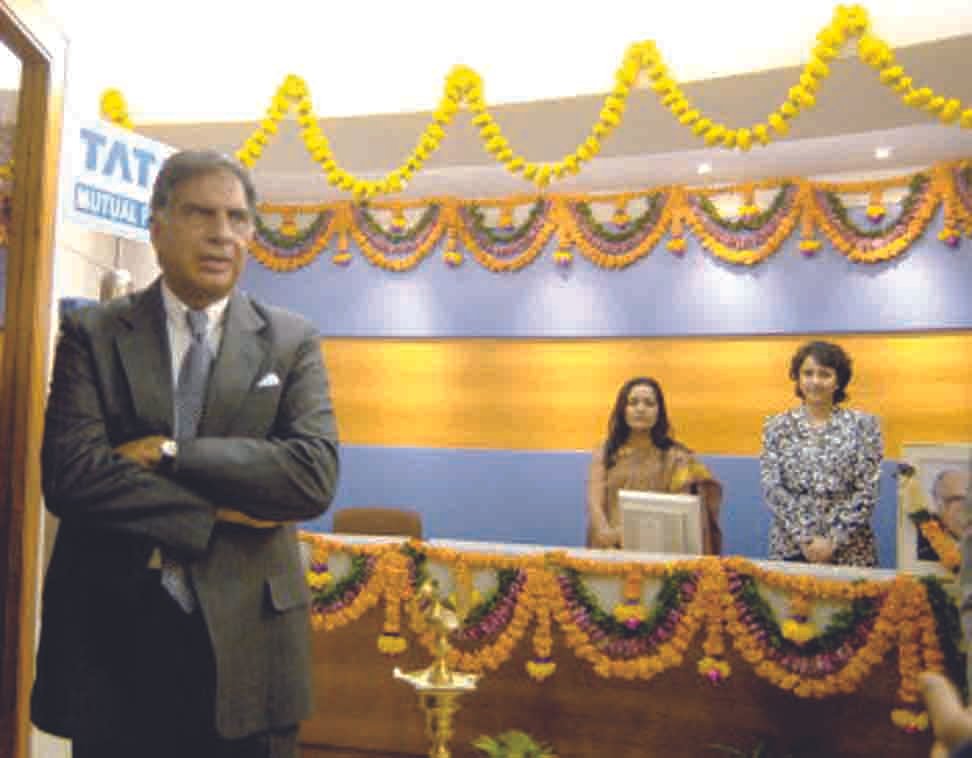
Tatas don’t want to become Number One in size and expansion but in satisfying the consumers with quality service and products.
Ratan Tata thinks that Tata Group must get in top three bracket in every sector in quality products and services. If it is not already there that sector must do its best to break into the list of top three. Once in top three the effort must be to occupy the Number One position. If some company of Tata Group fails to be in top three Ratan Tata would prefer to close that service or stop production.
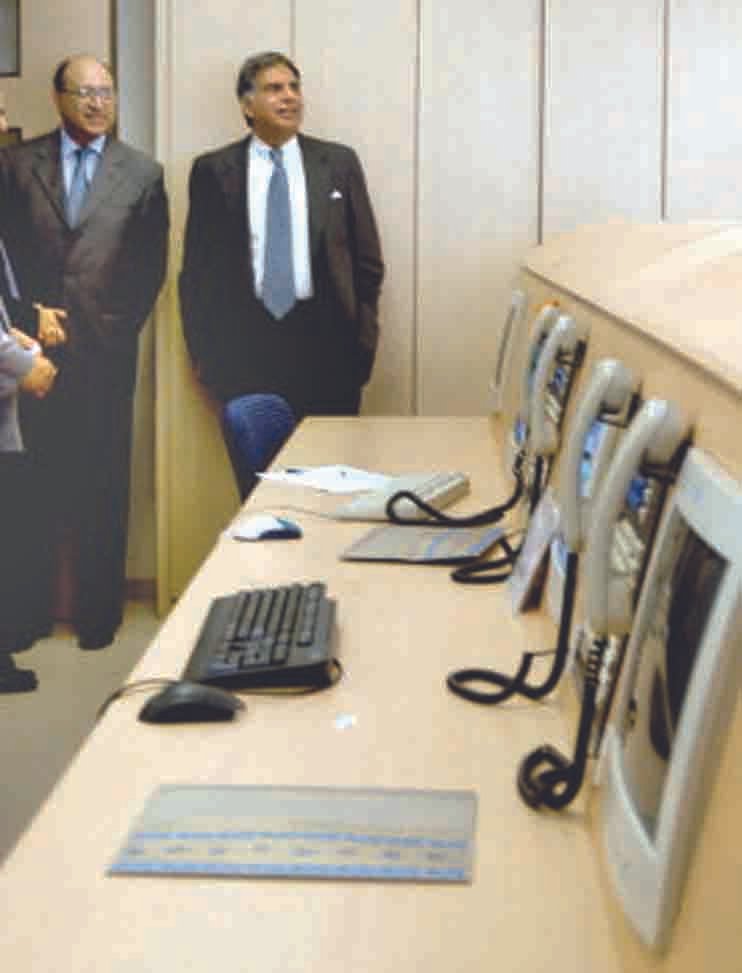
It is not an empty rhetoric. In 2004 Tata Group took over British tea company ‘Tetley’ after paying a hefty sum only to occupy Second spot in world tea market. In tea production Tatas are at the second spot both in volume and quality. Through this takeover Tatas had secured the Tetley’s international market.
Cooperation to Organisations
Ratan Tata has been associated to a lot of national and international organisations in various capacities to give them the benefit of his talents and good office. Take a look at the following impressive list :
❑ President—Investment Commission, Govt. of India.
❑ Member—Prime Minister’s Council, Trade & Industry.
❑ Member—National Manufacturers Competitive Council.
❑ Member—National Hydrogen Energy Group.
❑ Associate—International Exchange Board appointed by the President, S. Africa.
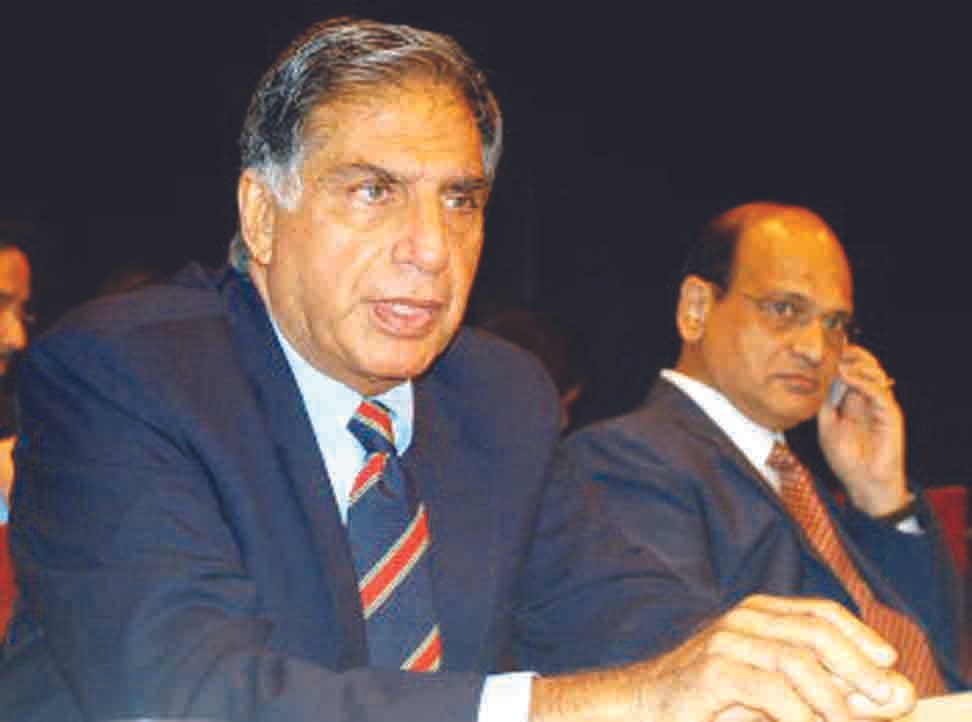
❑ Finance Secretary—International Trade Advisory Board set up by British Government.
❑ Member—International Advisory Board—Singapur Financial Development Council.
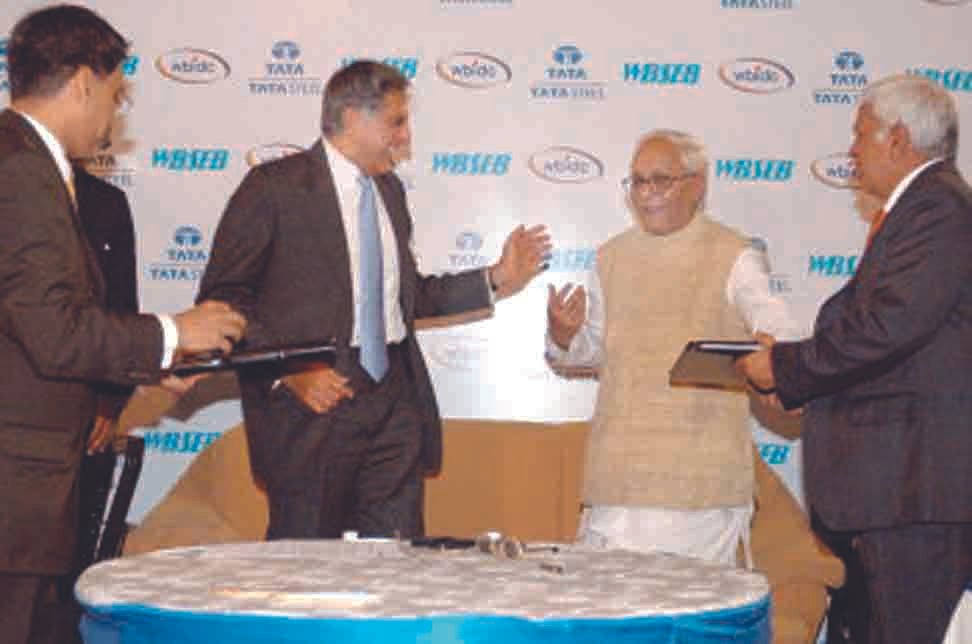
❑ Member—Asia Pacific Advisory Committee, N.Y. Stock Exchange, Board of Directors.
❑ Member—International Advisory Committee Mitsubishi Corporation, American International Group, J.P. Morgan Chest.
❑ President—Indian Science Institute Court, Bangaluru.
❑ Secretary—Management Committee, Tata Institute of Fundamental Research, Mumbai.
❑ Member—Global Business Council of HIV/AIDS and Bill & Melinda Gaits Foundation, India (to spread awareness on Aids).
❑ Chairman—Advisory Board for Asia Pacific Welfare Policies.
Honours
Ratan Tata has received countless honours, awards and titles for his achievements, contributions and performances/acts. Some remarkable ones are given below :
❑ Padmabhushan—2006 (Government of India).
❑ Honorary Doctorate—in Business Management, by Ohio University.
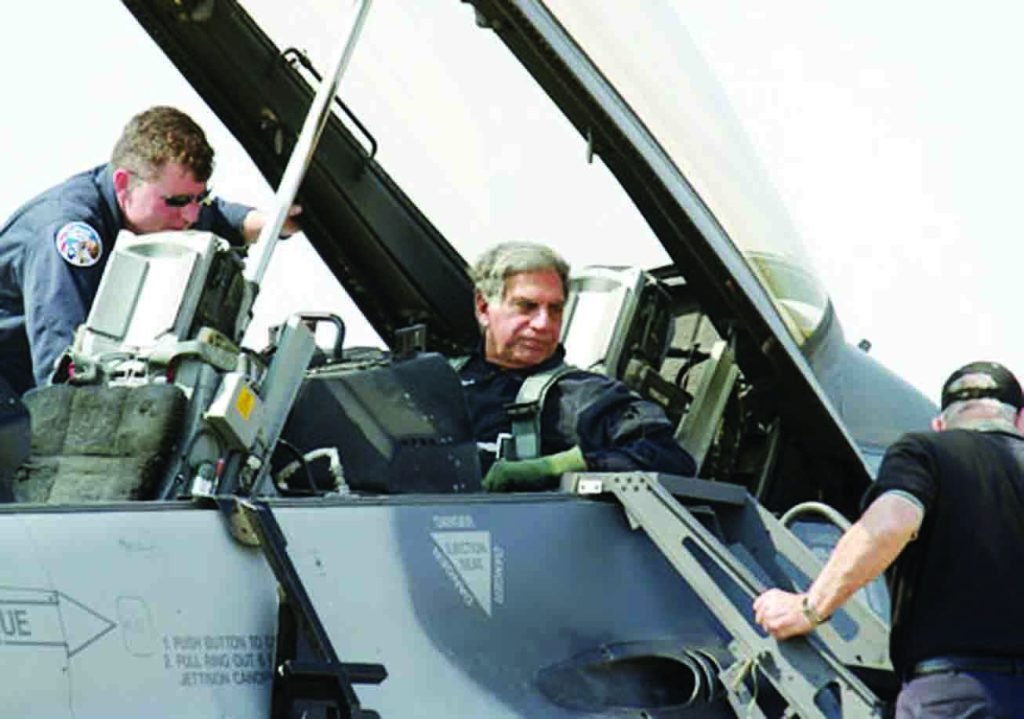
❑ Honorary Doctorate in Technological Excellence by Asian Institute of Technology, Bangkok.
❑ Honorary Doctorate in Science by Warwick University (for his contribution to the field).
❑ Fortune magazine—Figured in its list of ‘World’s Top-25 Most Influential Businessmen’.
❑ Padma Vibhushan—2008 (Government of India).
